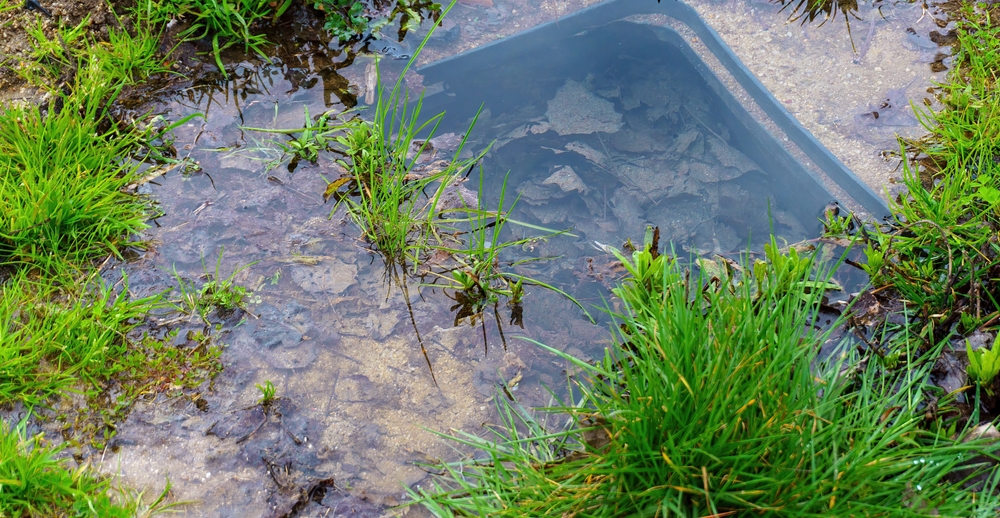Septic System Do’s and Don’ts During Heavy Rainfall

Heavy rainfall can significantly impact your septic system’s functionality. Understanding the relationship between heavy rain and septic systems is crucial for maintaining their efficiency and avoiding costly repairs. In this guide, we’ll explore the do’s and don’ts for managing your septic system during heavy rainfall and answer the question, “How does rain affect septic systems?”
How Rain Affects Septic Systems
Before diving into the dos and don’ts, it’s important to understand how does rain affect septic systems. Heavy rain can lead to several issues with your septic system, such as:
- Increased Water Flow: Heavy rainfall increases the volume of water entering your septic system. This can overwhelm the system, leading to potential backups or overflows.
- Saturated Soil: Excessive rain can saturate the soil around the septic system, making it difficult for the system to properly treat and disperse wastewater.
- Potential for Surface Contamination: If the system is overloaded, wastewater might surface, leading to potential contamination of the yard or nearby water sources.
Do’s for Managing Your Septic System During Heavy Rainfall
1. Regular Maintenance Checks
Perform regular maintenance checks on your septic system, especially before anticipated heavy rainfall. This includes inspecting the tank, drain field, and other components to ensure they are in good working condition. A well-maintained system is less likely to be affected by heavy rain.
2. Monitor Water Usage
During periods of heavy rain, be mindful of your water usage. Excessive water use can strain your septic system, leading to potential issues. Limit activities such as laundry, dishwashing, and long showers to prevent overwhelming the system.
3. Keep Drainage Away from the Septic System
Ensure that surface water is directed away from the septic system. Use grading or berms to prevent rainwater from pooling around the septic tank and drain field. Proper drainage can help maintain the system’s functionality and prevent overloading.
4. Inspect and Clear Gutters and Downspouts
Ensure that gutters and downspouts are clear of debris and functioning properly. Properly directed rainwater away from the septic system can reduce the risk of saturation and potential issues with the system.
5. Check for System Overflows
After heavy rainfall, inspect your property for signs of septic system overflow, such as standing water or foul odors. If you notice any issues, contact a professional to address the problem promptly.
Don’ts for Managing Your Septic System During Heavy Rainfall
1. Don’t Drive or Park on the Drain Field
Avoid driving or parking on the drain field area, especially during and after heavy rainfall. Heavy vehicles can compact the soil, reducing the system’s ability to disperse water effectively and potentially causing damage to the system.
2. Don’t Flush Non-Biodegradable Items
Refrain from flushing items such as wipes, sanitary products, or paper towels down the toilet. These items do not break down easily and can contribute to blockages, which may be exacerbated during heavy rainfall.
3. Don’t Use Harsh Chemicals
Avoid using harsh chemicals or cleaners that can disrupt the balance of beneficial bacteria in your septic system. During heavy rain, maintaining the health of these bacteria is crucial for proper wastewater treatment.
4. Don’t Ignore Warning Signs
If you observe any warning signs of septic system issues, such as slow drains, gurgling noises, or unpleasant odors, do not ignore them. Heavy rainfall can exacerbate these problems, so addressing them promptly can prevent further complications.
5. Don’t Disregard Professional Advice
If you’re unsure about the condition of your septic system or how to manage it during heavy rainfall, consult a professional. They can provide guidance and perform any necessary maintenance or repairs to ensure your system remains in good working order.
Conclusion
Managing your septic system during heavy rainfall is crucial for maintaining its efficiency and avoiding potential issues. By following these do’s and don’ts, you can help ensure that your system remains functional and avoid costly repairs. Remember, heavy rain and septic systems require careful attention to prevent overloading and potential contamination. If you have any concerns or notice signs of trouble, don’t hesitate to seek professional help to keep your septic system in optimal condition.
Need Septic Tank Services in Cleveland, TX?
Welcome to All Pro Septic! We are a family-owned and -operated septic tank cleaning business. We can install, repair, and maintain septic tanks for residential, commercial, and industrial properties. We also provide line cleaning, sewage pump repair, and clean grease traps, lint traps, and aerobic systems. We always offer free estimates to better your convenience. Do not let your septic tank stop you from wanting to use the restroom. Call us today and get a quote!
Categorised in: Septic System Maintenance
Comments are closed here.